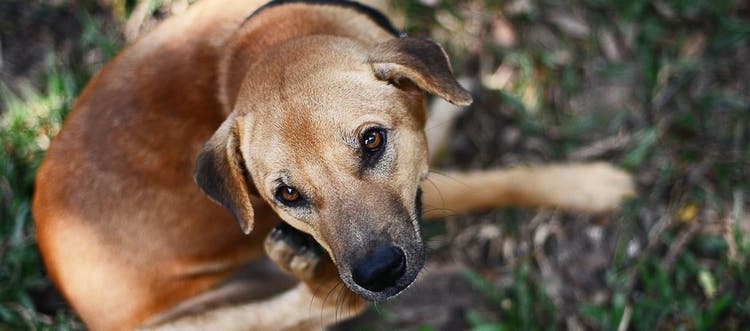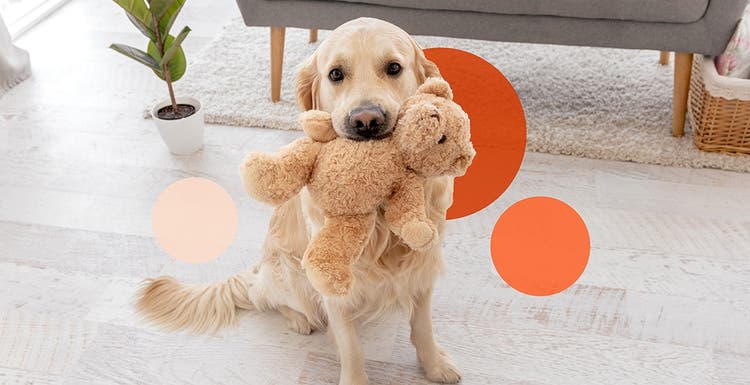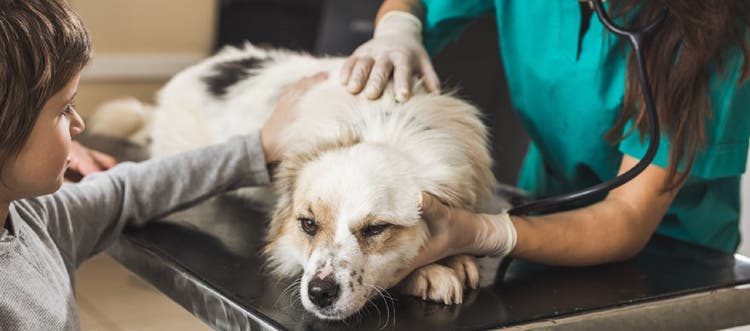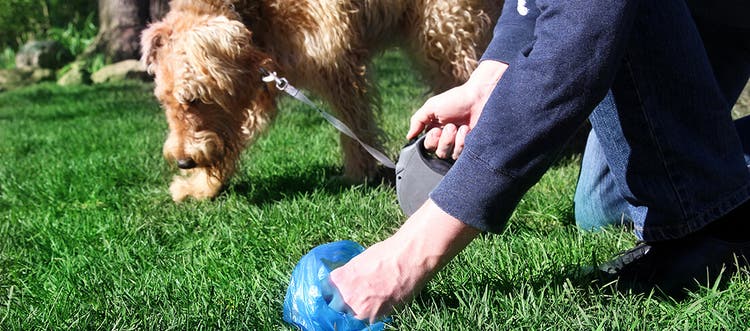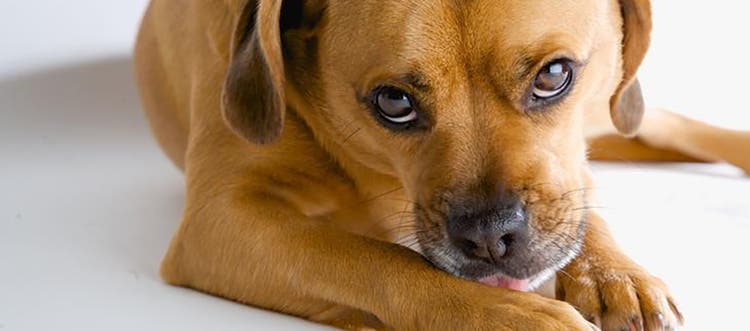Learn what scooting in dogs can mean.
Sometimes dogs do things that are a little confusing and embarrassing to us humans, especially when they do them in front of visitors. Scooting is one of those things.
Why do dogs drag their rear ends over your clean carpets and on grass? Surprisingly, the reason isn’t strange at all — they’re simply trying to scratch an itch. While it’s normal for dogs to scoot occasionally to scratch their itchy bottom, frequent scooting may need veterinary attention.
Your dog might have a chronically itchy rear for several reasons, most of which can be taken care of with a visit to your vet.
Why Do Dogs Drag Their Butts?
Intestinal Parasites
Intestinal parasites are a common cause of dog scooting. These pests include tapeworms, roundworms, hookworms and whipworms. Dogs with worms often have diarrhea, which can lead to an irritated, uncomfortable rear end. Other symptoms include:
- Vomiting
- Lethargy
- A bloated belly
- Blood in their stool
If your dog has tapeworms, you may even find a few egg packets around their anus or in their feces that look like grains of rice.
Fortunately, dealing with worms is typically easy and straightforward; all you need to do is give your dog medication that kills the parasites in their system. By taking a stool sample from your dog, your veterinarian can recommend a dewormer that targets the specific parasite or parasites. Once the worms have been taken care of, your pup’s scooting habit should also be under control.
Anal Gland Problems
If you see your dog scooting, it could be because they have full or impacted anal glands. Your pup has two anal glands located on either side of the anus. These glands produce a thick, smelly liquid that adds a unique scent to your pup’s poop to alert other dogs to their presence.
If your dog’s anal glands stop emptying naturally like they’re supposed to, the glands can become impacted or full, leading to an itchy behind and difficult or painful bowel movements. Too much scooting can make the problem worse by irritating the sensitive skin around the dog’s anus. Take your pup to the vet as soon as possible to express their glands and offer your dog some relief.
Other Reasons for Scooting
But why do dogs drag their butts if they are worm-free and their anal glands are fine? Several other conditions can cause dogs to scoot, including:
- Food allergies
- Flea allergy dermatitis
- Anal tumors
- Skin infections or irritations
- Diarrhea or loose stools
A trip to the vet can help determine what exactly is causing your dog to scoot, and your veterinarian will know how to best treat the issue.
How Your Vet Can Help
During your trip to the vet, they will examine your dog’s behind and check for signs of infection, anal gland problems, intestinal parasites or tumors. They also will likely check for fleas or other skin parasites that could lead to itching and consider allergies.
Flea bites can cause itchy skin in dogs, as can food allergies. If your vet suspects that your dog has a food allergy, you may need to change their diet. And if fleas are to blame, your vet may give you a medication to help get rid of the fleas. Your vet may also discuss putting your dog on a monthly parasite prevention plan.
How to Help Prevent Your Dog from Scooting
One way to help stop your dog from having an itchy rear and scooting in the first place is getting them on a regular parasite prevention plan. Certain preventive products target more than one type of parasite at once, such as medications that treat and control intestinal parasites (roundworms, hookworms and whipworms) and also prevent heartworm disease and fleas. No one product can target all parasites, so more than one product may be needed. Talk to your vet to find the best option for your dog.
And if your vet has determined that your dog may routinely need their anal glands expressed, discuss your options with your vet. Depending on your dog’s unique needs, your vet may be able to take care of the issue at your annual exams, or they may suggest manual expressing during trips to the groomer or even learning how to do it yourself at home.
All dogs will scoot to relieve an itchy behind occasionally, but be on the lookout for excessive scooting that may indicate a more serious health issue. As always, take your dog to the veterinarian any time you’re concerned about your pup’s health.
